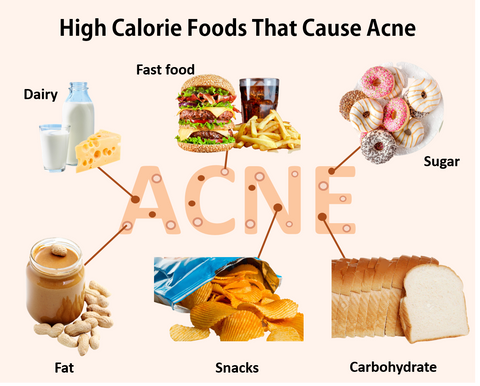Oily Food, Greasy Food and Acne | |||
 1,504 1,504  0 0  0 0 | |||
| While a direct causal link between oily or greasy food and acne hasn't been definitively proven, some studies suggest a correlation. High glycemic index foods, often found in greasy and oily meals, can trigger a surge in insulin and insulin-like growth factor 1 (IGF-1), potentially stimulating sebum production and inflammation, which contribute to acne development. However, individual responses vary, and other factors like genetics, hormones, and hygiene significantly impact acne severity. Therefore, while limiting greasy foods might be beneficial for some individuals, it's not a guaranteed acne solution and should be considered alongside a comprehensive skincare routine and potentially medical advice.
The relationship between oily/greasy food and acne is complex and not fully understood, but it's a common belief that they contribute to breakouts. The evidence is mixed, and the connection isn't as straightforward as "eating greasy food directly causes acne." Here's a breakdown:
Arguments against a direct, strong link:
In summary: While a diet high in saturated and trans fats and high-glycemic foods *might* contribute to acne in some individuals by increasing sebum production, inflammation, and hormonal fluctuations, it's not a guaranteed cause-and-effect relationship. Many other factors are involved. If you suspect a dietary connection to your acne, a balanced diet with less processed foods, saturated and trans fats, and high-GI foods might be beneficial, but it's essential to consult a dermatologist for a proper diagnosis and personalized treatment plan. They can assess your specific situation and provide the best advice. Focusing solely on avoiding oily food without addressing other underlying factors might not be effective for managing acne. Tags: Acne Greasy Food Oily Food | |||
| |||
| | |||
|
 3350
3350 